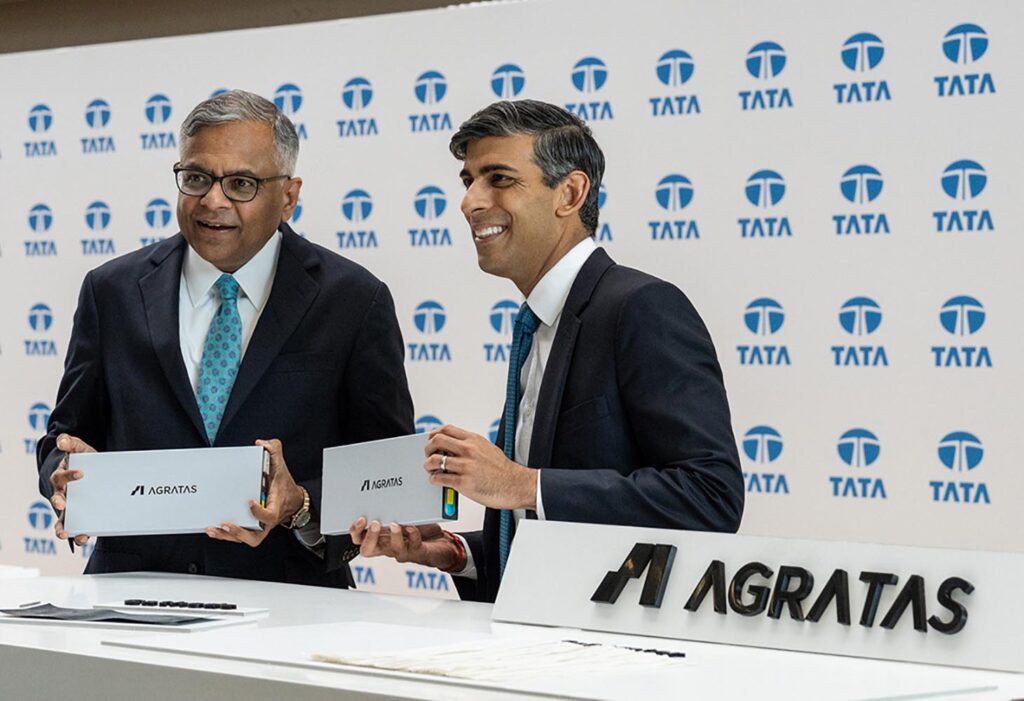The machinery’s whirring and the activity buzz signal a new chapter in the UK’s electric vehicle (EV) journey. Tata Motors news, the Indian auto giant, has officially commenced work on its much-anticipated gigafactory in Somerset, England, marking a significant milestone in the nation’s push towards sustainable mobility.
A Game-Changer in the Making:
This multi-billion-pound investment, slated for completion in 2026, will be the first for Tata Motors outside India. Tata’s huge new battery factory in the UK will make tons of batteries (40GWh!), not just for their own electric cars but also for other companies in Europe, making it a major player in the EV battery scene.
Impact Beyond Batteries:
The project’s significance extends far beyond battery production. It’s estimated to create thousands of direct and indirect jobs, inject new life into the region’s economy, and propel the UK towards its net-zero emissions goal by 2050. This includes:
- Direct Job Creation: The factory will directly generate up to 4,000 skilled jobs, providing a much-needed boost to the local workforce.
- Supply Chain Growth: The project is expected to stimulate the growth of a robust supporting ecosystem, encompassing raw material suppliers, component manufacturers, and logistics providers, creating further jobs and economic opportunities.
- R&D Hub: The gigafactory will also serve as a hub for research and development, attracting talent and fostering innovation in battery technology, further propelling the UK’s position in the global EV landscape.

Addressing the Challenges:
However, the road ahead has its challenges. Building the gigafactory requires skilled workers, eco-friendly material sources, and solutions for environmental impact. Plus, they need to constantly innovate and make good batteries at competitive prices to beat existing companies.
A Global Collaboration:
The project signifies a broader trend of international collaboration in the EV space. Tata Motors’ partnership with the UK government, local authorities, and other businesses underscores the interconnectedness of the clean energy transition. Collaboration is crucial for sharing expertise, resources, and best practices, ultimately accelerating the global shift towards sustainable transportation.
India’s EV Ambitions:
For Tata Motors, the UK gigafactory represents a stepping stone in its electrification journey. It caters to the European market and serves as a knowledge-sharing platform for its India operations. The company aims to capture a significant share of the rapidly growing Indian EV market, and the UK experience will be invaluable in achieving this goal.
Looking Ahead:
Commencing work on the Tata Motors gigafactory marks a watershed moment in the UK’s EV ambitions. Despite challenges, Tata’s UK gigafactory promises jobs, economic growth, and a cleaner future with electric vehicles. The project is exciting and a step towards a more sustainable world, watched closely by many.
